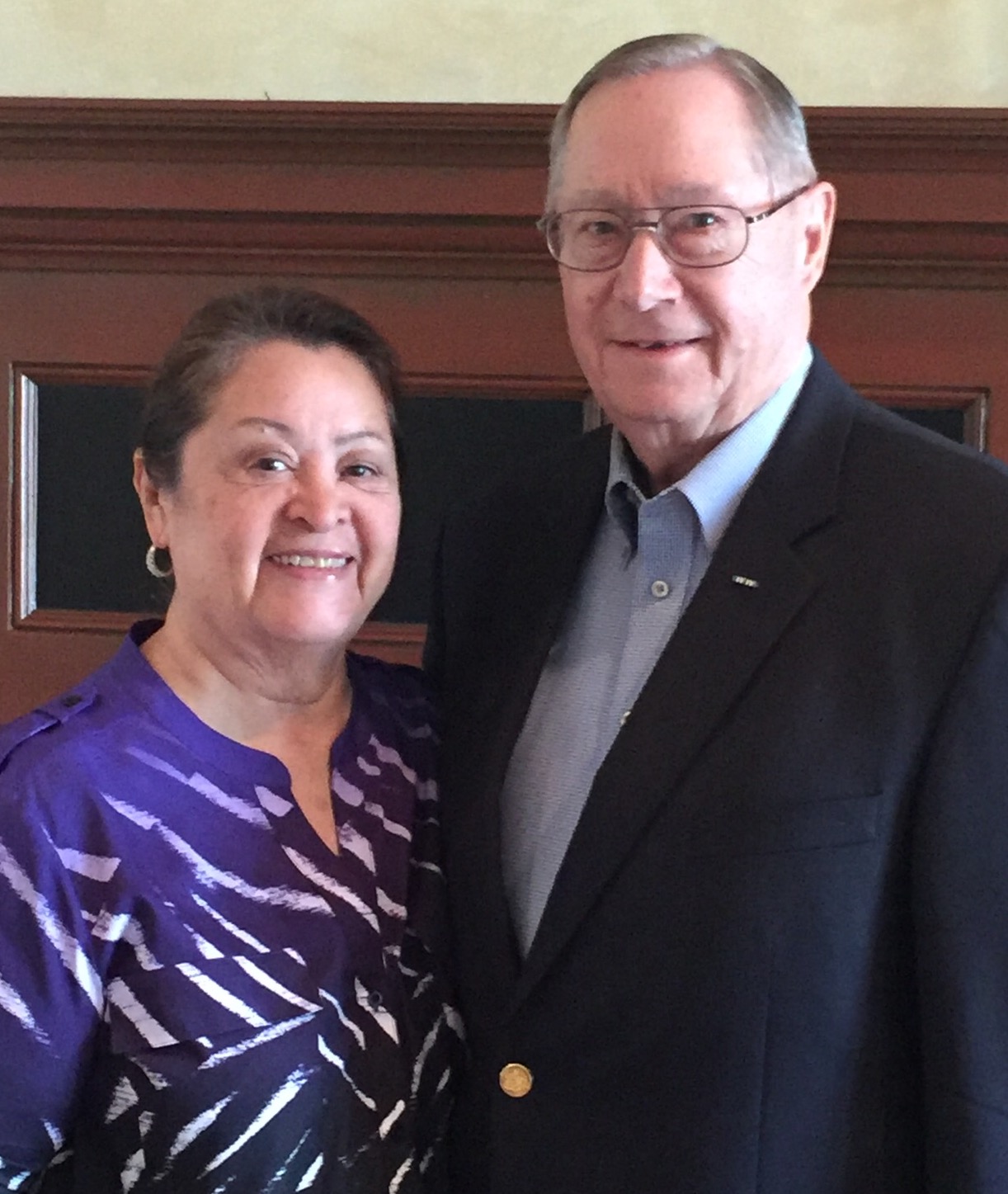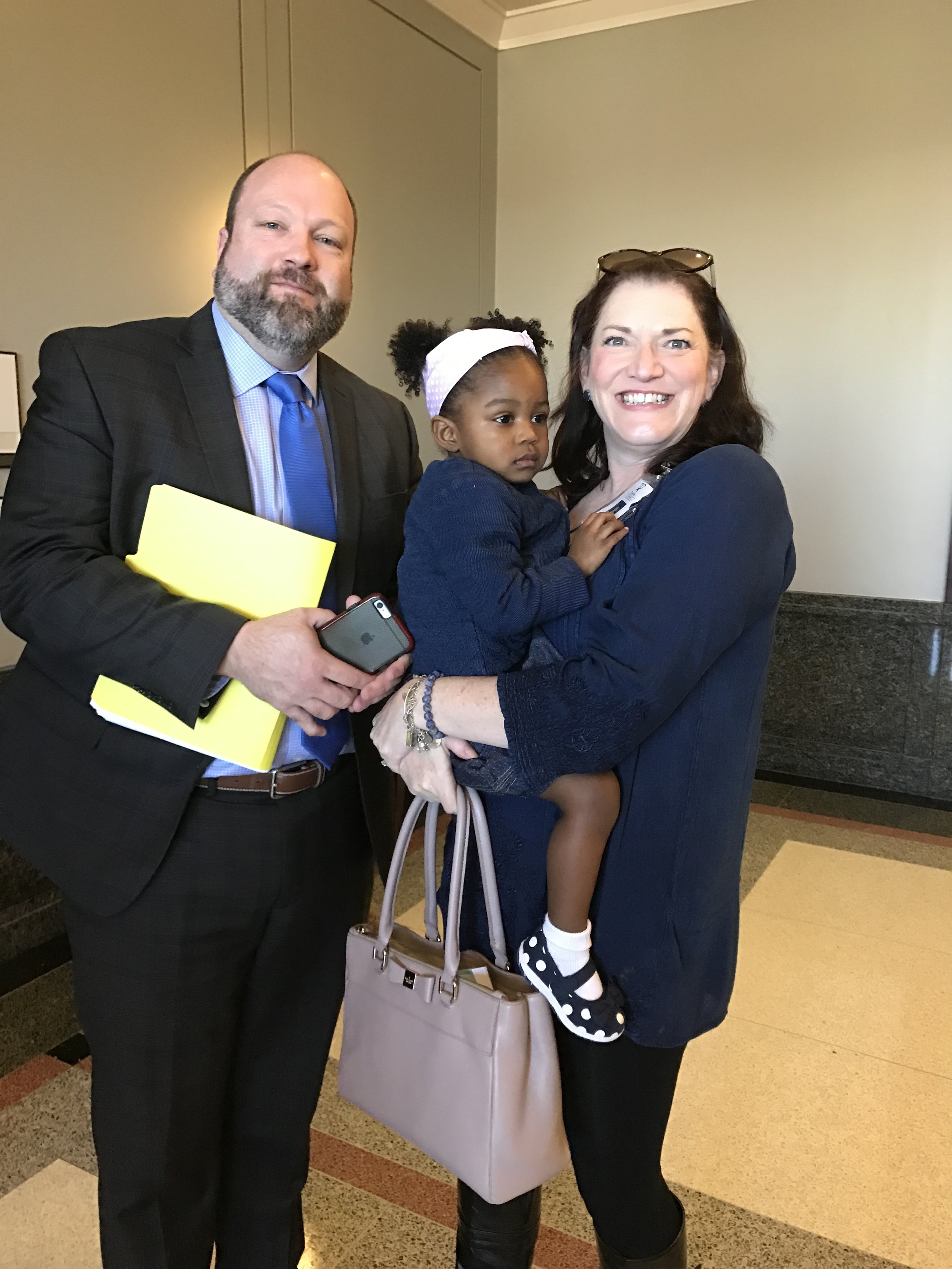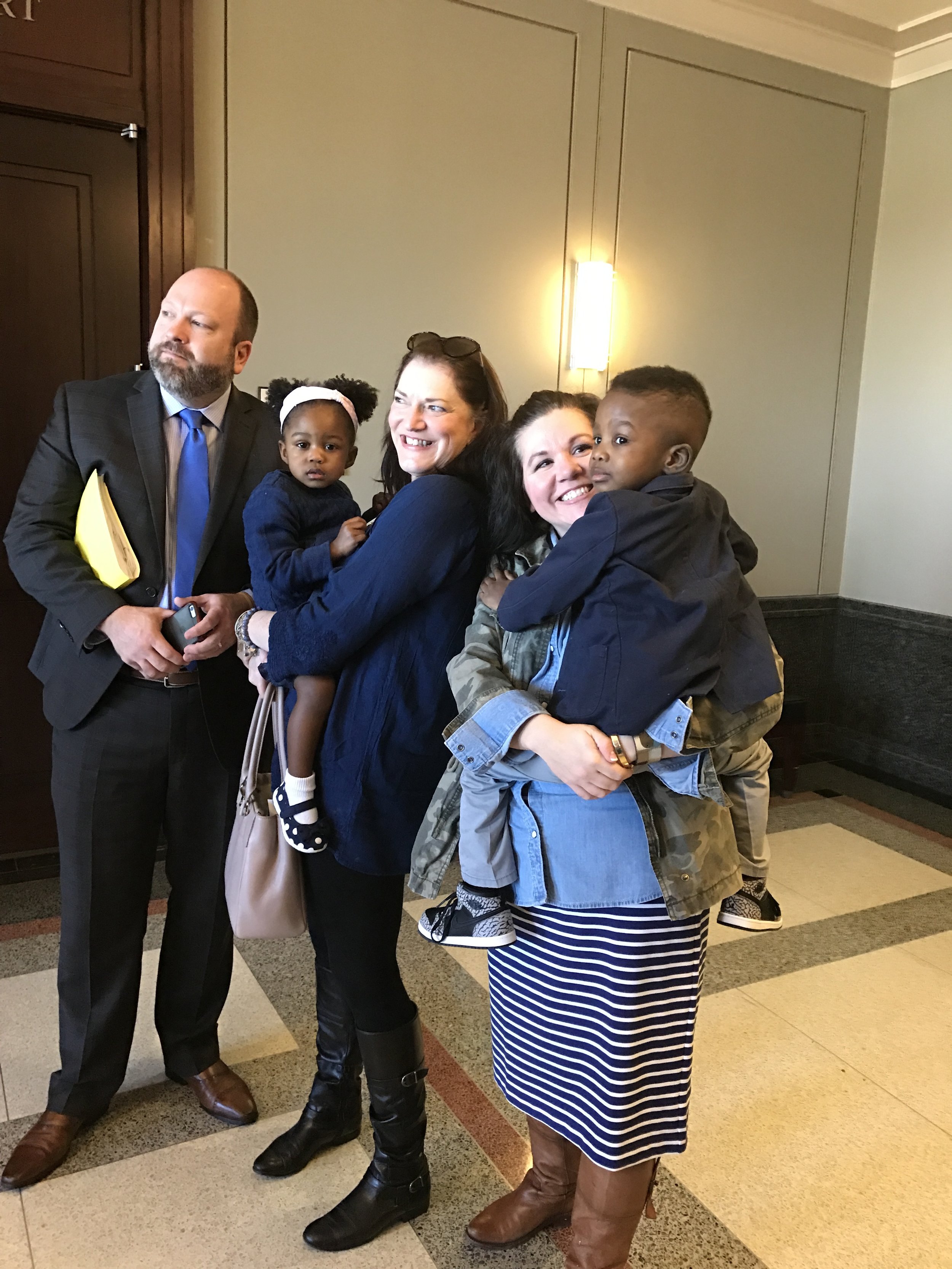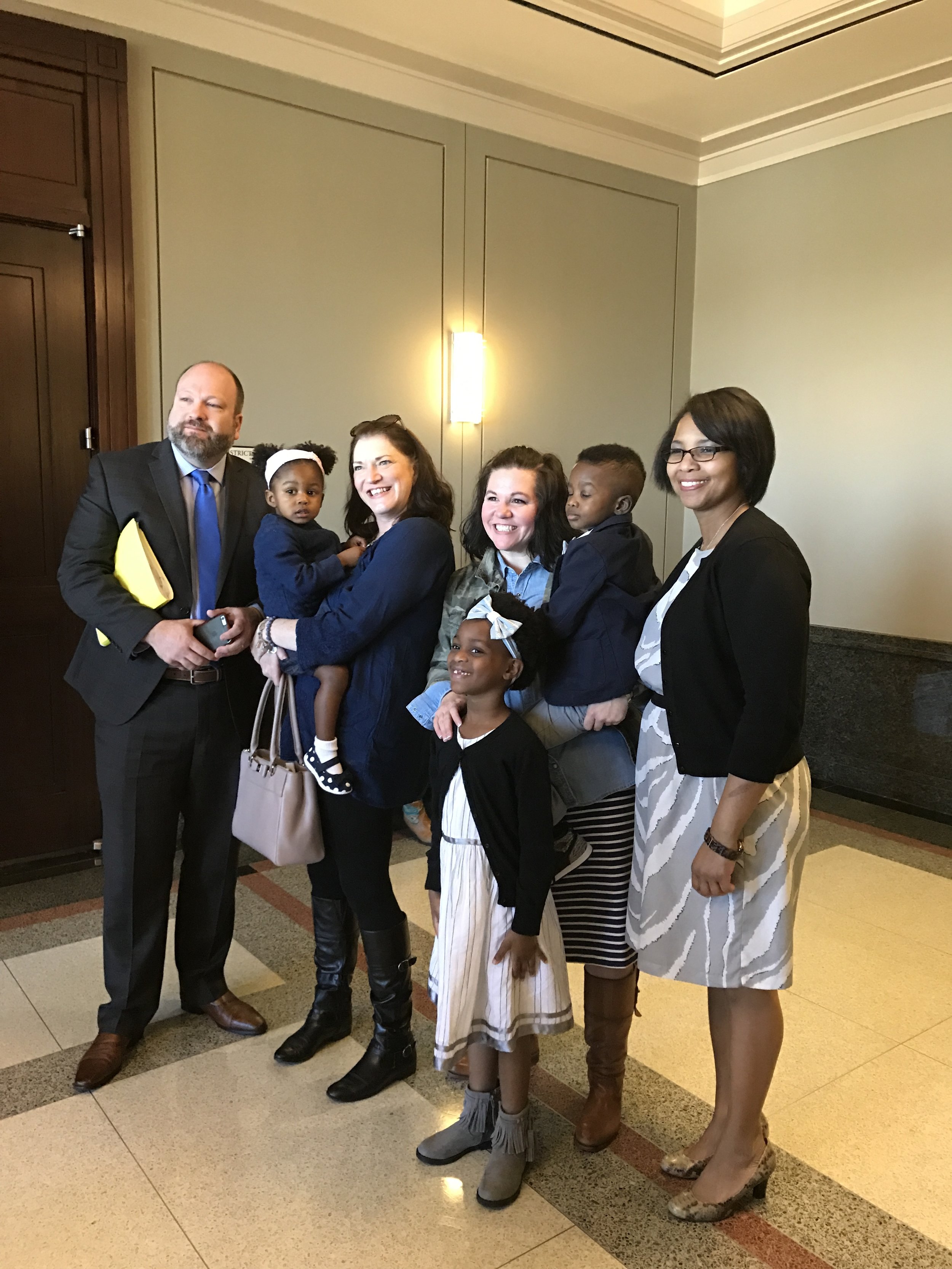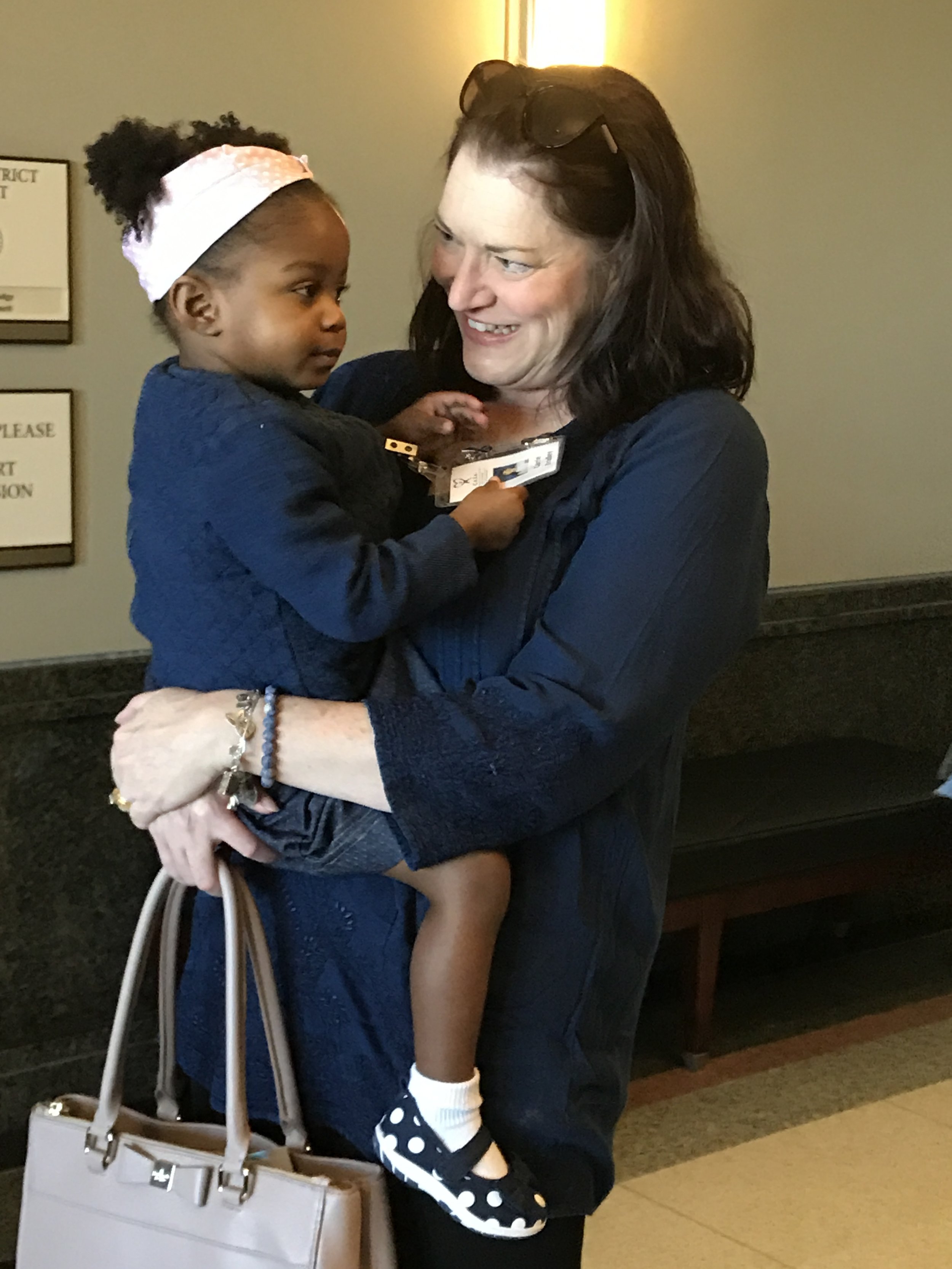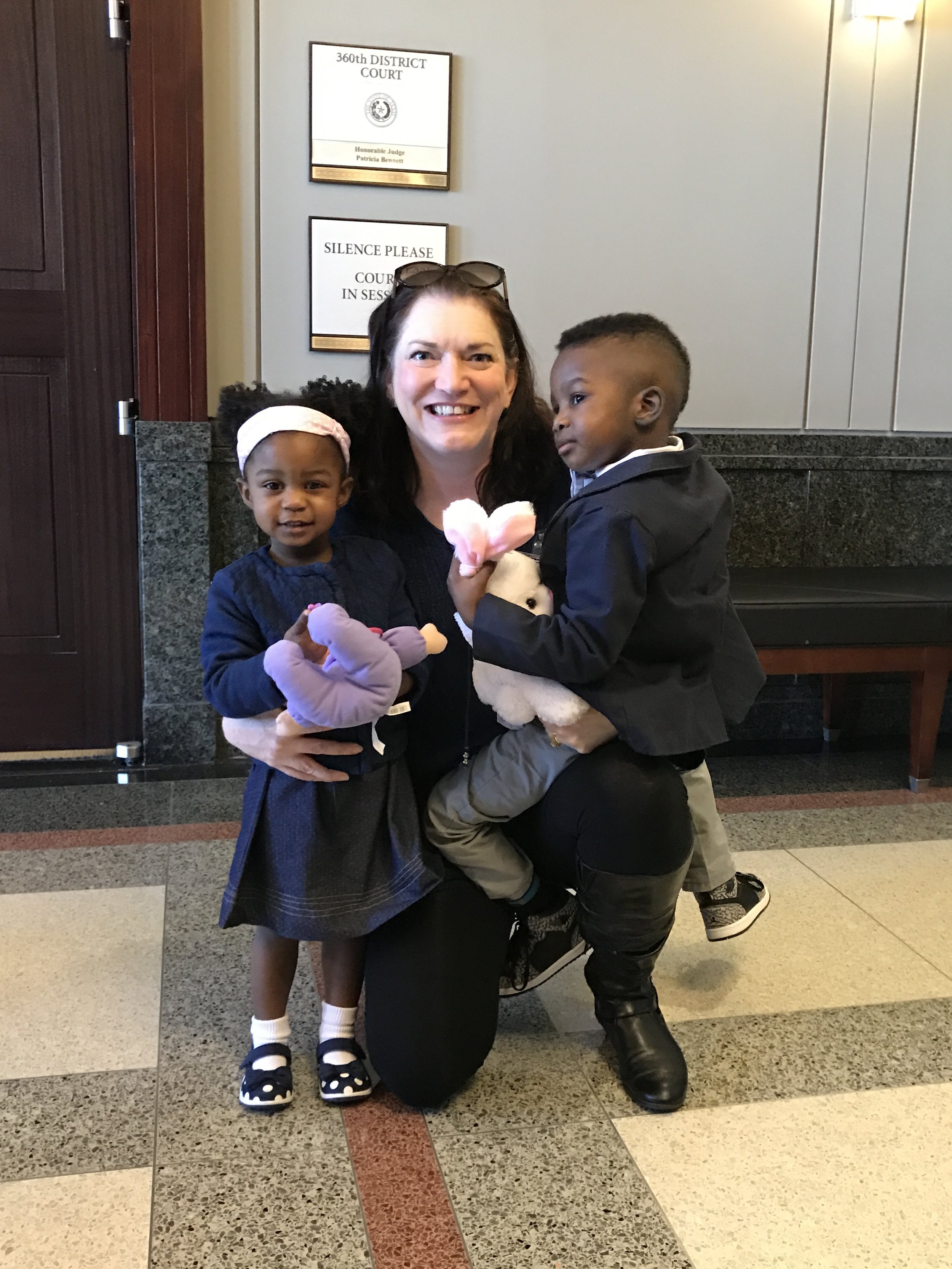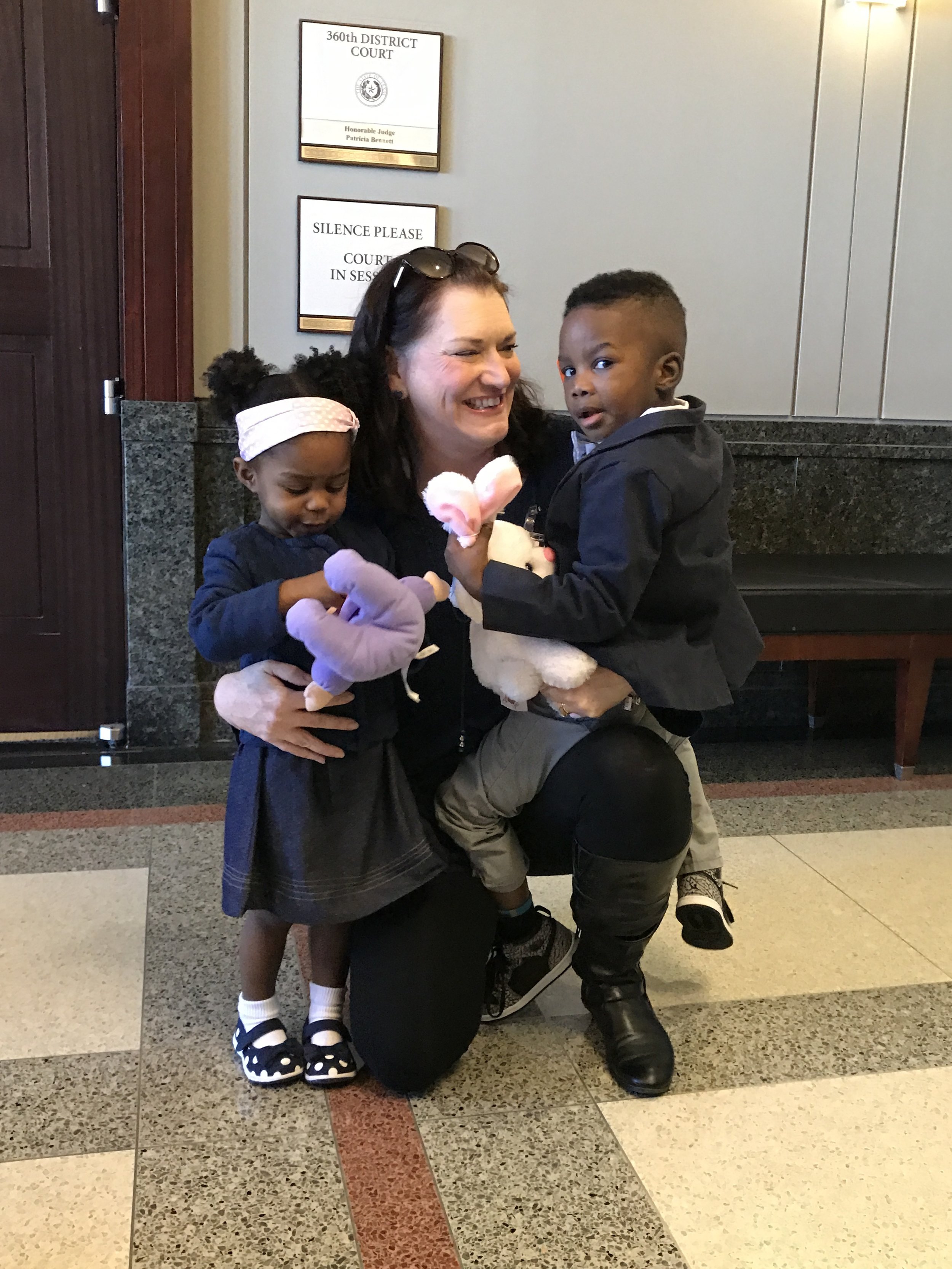Quote from Team Lead, Jaime Hernandez: “Michael and Graciela Chase were one of my first assigned advocates when I began working at CASA as a casework supervisor. From the very beginning, after assigning their first case, they displayed an unparalleled commitment to the welfare of the children and the family in their case. The family they were working with spoke only Spanish and were in need of a lot of support to navigate the CPS system. Michael and Graciela went above and beyond by staying with the family through the different appointments, helping themfigure out cumbersome government paperwork and aggressively advocating for acquiring a wheelchair that one of the children so urgently needed. Michael and Graciela visited the children almost bi-weekly and worked closely with the relative placement to insure the safety of the children. They communicated consistently with all parties in the case. More specifically they talked with therapists and doctors, counselors and attorneys as well as the CPS caseworker to ensure the needs of the children were met in full. Their caring attitude, professional demeanor and tireless advocacy sets them apart.”
1. What made you decide to become a CASA?
Mike: Two years ago we invited recently retired friends from Denton County for dinner. During dinner, I asked one of them what he was doing during retirement. He said he was a CASA Volunteer in Denton County. As a bilingual (Spanish) person he said that bilingual volunteers are badly needed and in short supply. He recommended that I, also bilingual in Spanish, attend an information session. I then signed up for an information session and talked my wife, Graciela, into going with me. Long story short, after the session we agreed to sign up as a team to work multi-children cases.
Graciela: Mike decided to go to the information session and of course he talked me into going with him. I learned about the worthwhile services CASA provides to neglected and abused kids and decided to be part of it. I feel very blessed in my life and I want to give some back.
2. What is your professional/volunteer background?
Once we retired, I became an investor in real estate and natural resources. Additionally, while in college, I took two years off and accepted a Peace Corps assignment to Guatemala (1963-1965). Before retirement Graciela worked in courseware design and development of technical training for several companies. In April 2016, we completed the CASA training and began our first case involving four young bilingual children. This case was completed the end of January 2017. We started our second case of four bilingual children in April of 2017.
3. What advice would you give to someone who is thinking about becoming a CASA?
Take action; sign up for an information session; and be open and flexible to any situation you may
encounter because every case is different.
4. What has been the most challenging part of being a CASA?
Understanding the variety of services available through CPS and Human Services to the relatives who agreed to accept the children into their family all of a sudden. Accredited Foster parents know this stuff already. But Grandma and Grandma of children have no clue and do not always understand child welfare. Additional training in this area would have been helpful.
5. What has been the most rewarding part of being a CASA?
Seeing the happiness on the faces of the relatives and children when the court awarded permanent managing custodian (PMC) status. Also, seeing the kids thrive and little by little get better with their new family.
6. Is there anything else you would like to add about yourself or your CASA experience?
Continue to learn and pray for guidance.


